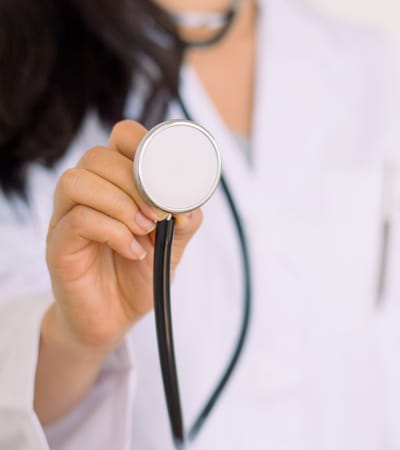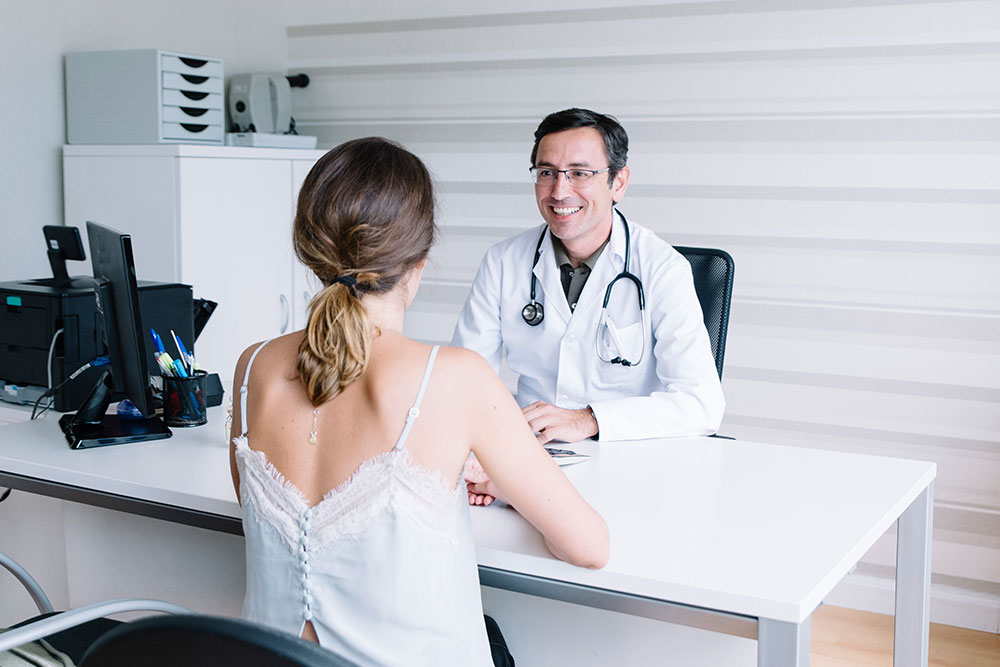What is a colonoscopy?
Colonoscopy is a procedure that enables your physician to examine the lining of the colon (large bowel or large intestine) for abnormalities. A flexible tube that is about the thickness of your finger is inserted into the rectum and advanced along the length of the colon.
What preparation is required?
The colon must be completely clean for the procedure to be accurate and complete. Your physician will give you detailed instructions regarding the dietary restrictions to be followed and the cleansing routine to be used. In general, preparation may consist of drinking a large volume of a special cleansing solution, a clear liquid diet, laxatives and/or enemas prior to the examination. Follow your physician’s instructions carefully. If you do not, the procedure may have to be canceled and repeated later.
What about my current medications?
Most medications may be continued as usual, but some medications may interfere with the preparation or the examination. Therefore it is best to inform your physician of your current medications including over-the-counter pain relievers, vitamins, and herbal supplements. It is also important to inform your physician of any medication or latex allergies. Also, you should notify your physician if you are taking any blood thinners such as Aspirin, Coumadin, Plavix, Aggrenox, Ticlid, or Persantine. Insulin and iron products are examples of medications whose use should be discussed with your physician prior to the examination.
What can be expected during a colonoscopy?
Colonoscopy is usually well tolerated. However, there is a feeling of pressure, bloating or cramping during the procedure. Your physician will give you medication through a vein to help you relax and better tolerate any discomfort from the procedure. You will be lying on your left side or on your back while the colonoscope is advanced slowly along the length of the large intestine. As the colonoscope is slowly withdrawn, the lining is again carefully examined. The procedure usually takes 15 to 60 minutes. In some cases, passage of the colonoscope to its junction with the small intestine cannot be achieved. The physician will decide if the limited examination is sufficient or if other examinations are necessary.
What if the colonoscopy shows something abnormal?
If your physician thinks an area of the bowel needs to be evaluated in greater detail, a forceps instrument is passed through the colonoscope to obtain a biopsy, a sample of the colon lining. This specimen is then submitted to the pathology laboratory for analysis. If colonoscopy is being performed to identify sites of bleeding, the areas of bleeding may be controlled through the colonoscope by injecting certain medications or by coagulation (sealing off bleeding vessels with heat treatment). If polyps are found, they are generally removed. None of these additional procedures typically produce pain. Remember, the biopsies are taken for many reasons and do not necessarily mean that cancer is suspected.
What are polyps and why are they removed?
Polyps are abnormal growths from the lining of the colon which vary in size from a tiny dot to several inches. The majority of polyps are benign (non-cancerous) but the physician cannot always tell a benign from a pre-cancerous or non-cancerous polyp by its outer appearance alone. For this reason, removed polyps are sent for tissue analysis. Removal of polyps is an important means of preventing colorectal cancer.
How are polyps removed?
Tiny polyps may be totally destroyed by fulguration, burning with electrical current, but larger polyps are removed by a technique called snare polypectomy. The physician passes a wire loop or snare through the colonoscope and severs the attachment of the polyp from the intestinal wall by means of an electrical current. You should feel no pain during the polypectomy. There is a small risk that removing a polyp will cause bleeding or result in a perforation of the wall of the colon, either of which could require surgery.
What happens after a colonoscopy?
After colonoscopy your physician will explain the results to you. If you are sedated, you will need to arrange to have someone accompany you to the facility, be available at the facility and drive you home after the procedure. Because sedatives affect your judgment and reflexes, you will not be allowed to drive or operate heavy equipment for the remainder of the day.
You may have some cramping or bloating because of the air introduced into the colon during the examination. This should disappear quickly with passage of flatus (gas). Generally, you should be able to eat after your procedure, but your physician may restrict your diet and activity, especially after polypectomy.
What are the possible complications of a colonoscopy?
Colonoscopy and polypectomy are generally safe when performed by physicians who have been specially trained and are experienced in these endoscopic procedures.
One possible complication is a perforation or tear through the bowel wall that could require surgery. Bleeding may occur from the site of biopsy or polypectomy. Bleeding is usually minor and stops on its own or can be controlled through the colonoscope. Rarely blood transfusions or surgery may be required. Other potential risks include a reaction to the sedatives used and complications from heart or lung disease. Localized irritation of the vein where medications were injected may cause a tender lump lasting for several weeks, but this will go away eventually. Applying hot packs or hot moist towels may help relieve discomfort.
Although complications after colonoscopy are uncommon, it is important for you to recognize early signs of any possible complication. Contact the physician who performed your colonoscopy immediately if you notice any of the following symptoms: severe abdominal pain, fever or chills, or rectal bleeding of more than 1/2 cup. Onset of bleeding can occur up to 2 weeks after removal of polyps.











